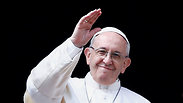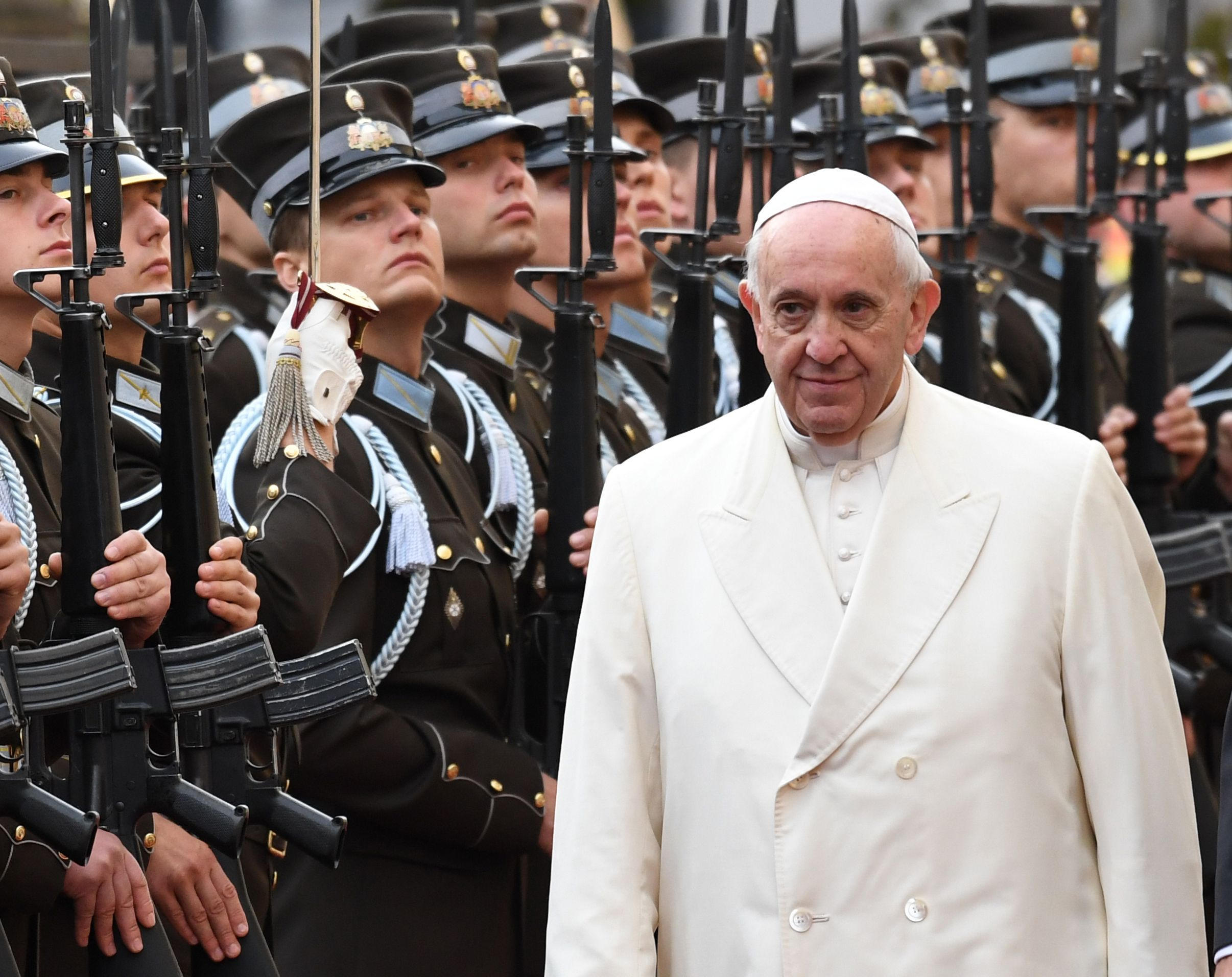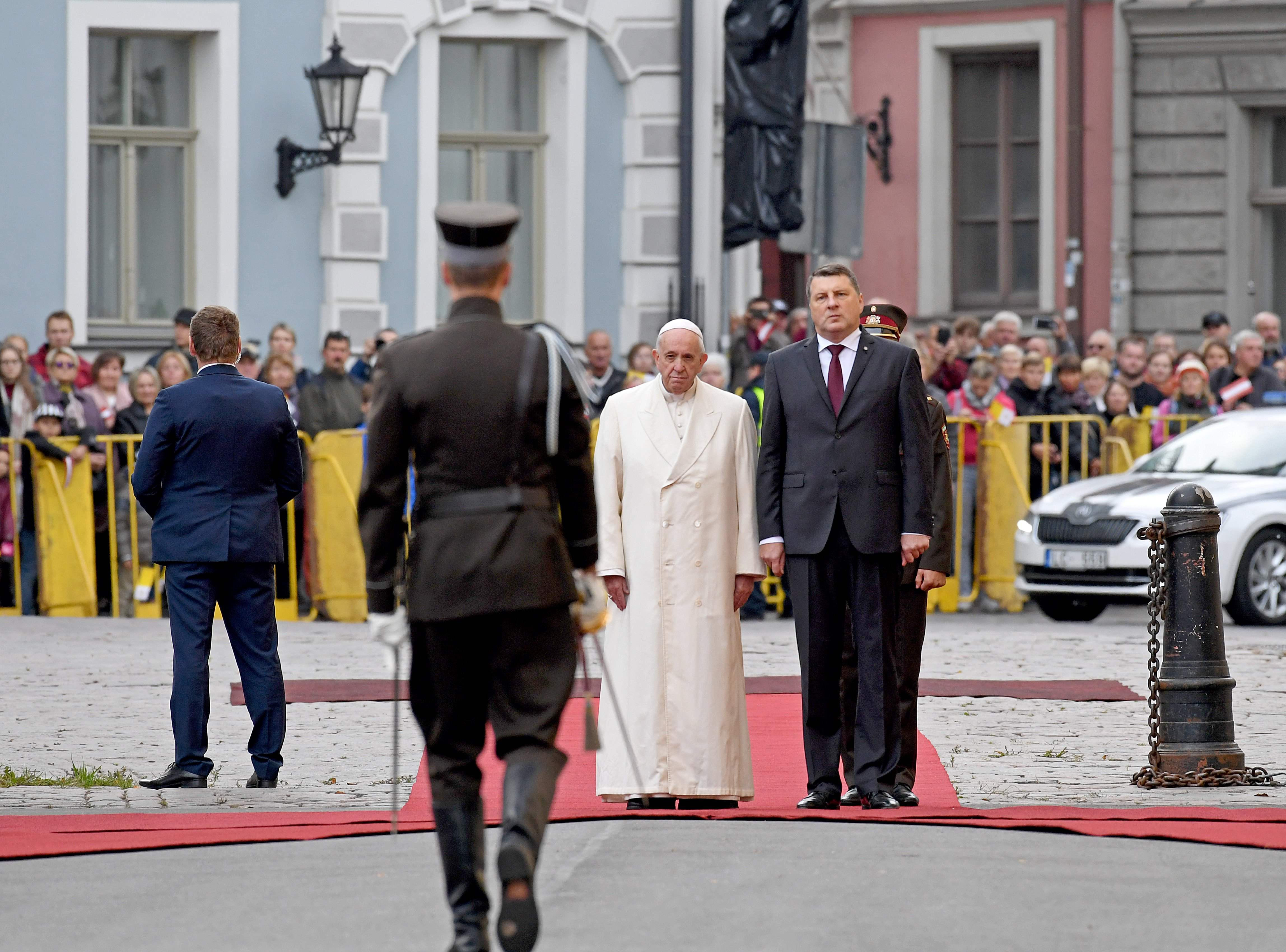
Pope Francis
צילום: רויטרס
Pope warns Lithuanians against rebirth of anti-Semitism
As part of Vatican City head of state's tour of the Baltics, Pope Francis visits former Jewish ghetto in Vilnius to remember Jews who were killed by Nazis and urges country, where neo-fascist parties are making gains, to refrain from temptation to be superior or dominant to others again.
Pope Francis warned Sunday against historic revisionism and any rebirth of anti-Semitism that fueled the Holocaust as he marked the annual remembrance for Lithuania's centuries-old Jewish community that was nearly wiped out during World War II.
Francis began his second day in the Baltics in Lithuania's second city, Kaunas, where an estimated 3,000 Jews survived out of a community of 37,000 during the 1941-1944 Nazi occupation. He ended it back in the capital, Vilnius, to pay his respects to Lithuanians who were deported to Siberian gulags or were tortured, killed and oppressed at home during five decades of Soviet occupation.
Francis honored freedom fighters at the former KGB headquarters where anti-Soviet partisans were detained and executed, solemnly touring the chambers that have now been turned into a haunting museum of occupation atrocities.
"In this place of remembrance, Lord, we pray that your cry may keep us alert," he said. "That your cry, Lord, may free us from the spiritual sickness that remains a constant temptation for us as a people: forgetfulness of the experiences and sufferings of those who have gone before us."
Francis recalled that Sunday also marked the 75th anniversary of the final destruction of the ghetto in Vilnius, which had been known for centuries as the "Jerusalem of the North" for its importance to Jewish thought and politics. Each year, the September 23 anniversary is commemorated with readings of the names of Jews who were killed by Nazis or Lithuanian partisans or were deported to concentration camps.
Francis prayed silently in the former ghetto and warned against the temptation "that can dwell in every human heart" to want to be superior or dominant to others again.
He prayed for the gift of discernment "to detect in time any new seeds of that pernicious attitude, any whiff of it that can taint the heart of generations that did not experience those times and can sometimes be taken in by such siren songs."
Across Europe, far-right, xenophobic and neo-fascist political movements are making gains, including in Lithuania.
Francis is travelling to Lithuania, Latvia and Estonia to mark their 100th anniversaries of independence and to encourage the faith in the Baltics, which saw five decades of Soviet-imposed religious repression and state-sponsored atheism. Lithuania is 80 percent Catholic; Lutherans and Russian Orthodox count more followers in Latvia and Estonia, where Francis visits on Monday and Tuesday.
The Baltic countries declared their independence in 1918 but were annexed into the Soviet Union in 1940 in a secret agreement with Nazi Germany. The Vatican and many Western countries refused to recognize the annexation. Except for the 1941-1944 Nazi occupation, the Baltic countries remained part of the Soviet Union until its collapse in the early 1990s.
Francis' trip changed its schedule three weeks ago to allow him to acknowledge the slaughter of around 90 percent of Lithuania's 250,000 Jews at the hands of Nazi occupiers and complicit Lithuanians.
The issue of Lithuanian complicity in Nazi war crimes is sensitive here. Jewish activists accuse some Lithuanians of engaging in historical revisionism by trying to equate the extermination of Jews with the deportations and executions of other Lithuanians during the Soviet occupation.
Many Lithuanians don't make any distinctions between the Soviets who tortured and killed thousands of Lithuanians and the Nazis who did same with Jews.
Until recently, the Vilnius KGB museum was actually called the "Genocide Museum" but changed its name to the "Museum of Occupations and Freedom Fights" since it focuses on Soviet atrocities, not Nazi German ones.












